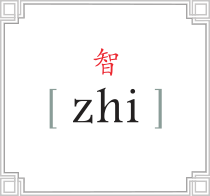Darjeeling Estate
Ingredients: 100% Organic black loose tea leaves
A luscious third (Autumn) flush Darjeeling Tea. Right from the start you can appreciate its unique gifts. A colorful variegated leaf - copper, cinnamon, green and charcoal grey.
The liquor is clover honey-colored with a sweet, floral character. The infusion has a distinct spicy, almost chocolate flavor; well-rounded, complex, and one-of-a-kind with hints of muscatel notes.
From one of oldest gardens of Darjeeling, the Steinthal Estate.
A shorter steep yields a superb straight tea needing no milk or sugar.
Water: 208°F | Leaves: 2 tsp per 12 ounce cup | Infusion Time: 3-4 minutes
Basic Steeping Tips
- Use filtered or spring water, whenever possible
- Don’t overboil water
- Remove leaves after recommended time (adjust to taste) - If you want stronger tea, use more leaves instead of steeping for a longer time
Leaves can be resteeped 2-3 times resulting in various flavor differences. Don’t throw out those leaves until they have given it all up!
Black tea has a class of polyphenols that protect your bones and teeth (help the body from pulling calcium) and is good for your heart. Black tea contains antioxidants and about 1/3 the amount of caffeine as found in a cup of coffee.
The history of tea in China is long and complex. The Chinese have enjoyed tea for millennia. Scholars hailed the brew as a cure for a variety of ailments; the nobility considered the consumption of good tea as a mark of their status, and the common people simply enjoyed its flavor.
Tea was first discovered by the Chinese Emperor Shennong in 2737 BC. It is said that the emperor liked his drinking water boiled before he drank it so it would be clean, so that is what his servants did. One day, on a trip to a distant region, he and his army stopped to rest. A servant began boiling water for him to drink, and a dead leaf from the wild tea bush fell into the water. It turned a brownish color, but it was unnoticed and presented to the emperor anyway. The emperor drank it and found it very refreshing, and cha (tea) was born.














